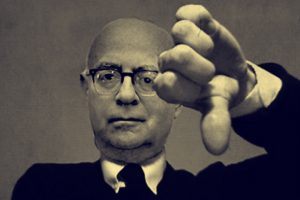Jonathan Rée at the TLS:
 Back in the 1970s, Raymond Geuss was a young colleague of Richard Rorty in the mighty philosophy department at Princeton. In some ways they were very different: Rorty was a middle-class New Yorker with a talent for reckless generalization, whereas Geuss was a fastidious scholar-poet from working-class Pennsylvania. But they shared a commitment to left-wing politics, and both of them dissented from the mainstream view of philosophy as a unified discipline advancing majestically towards absolute knowledge. For a while, Rorty and Geuss could bond as the bad boys of Princeton.
Back in the 1970s, Raymond Geuss was a young colleague of Richard Rorty in the mighty philosophy department at Princeton. In some ways they were very different: Rorty was a middle-class New Yorker with a talent for reckless generalization, whereas Geuss was a fastidious scholar-poet from working-class Pennsylvania. But they shared a commitment to left-wing politics, and both of them dissented from the mainstream view of philosophy as a unified discipline advancing majestically towards absolute knowledge. For a while, Rorty and Geuss could bond as the bad boys of Princeton.
The philosophical establishment denounced people like Rorty and Geuss as relativists, bent on destroying the sacred distinction between truth and falsehood. But they defended themselves by pointing out that even if there is such a thing as an almighty final truth, it looks different from diverse points of view, and gets expressed in different words in diverse times and places.
more here.
